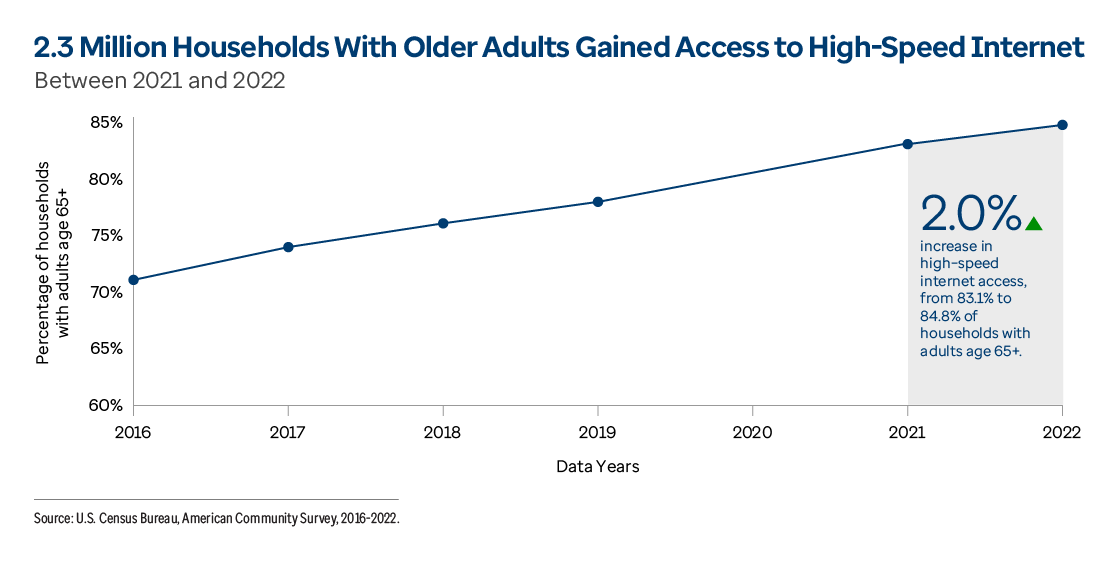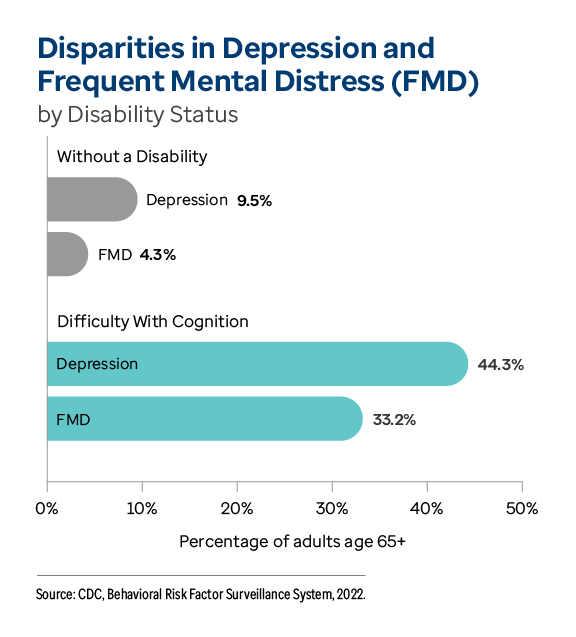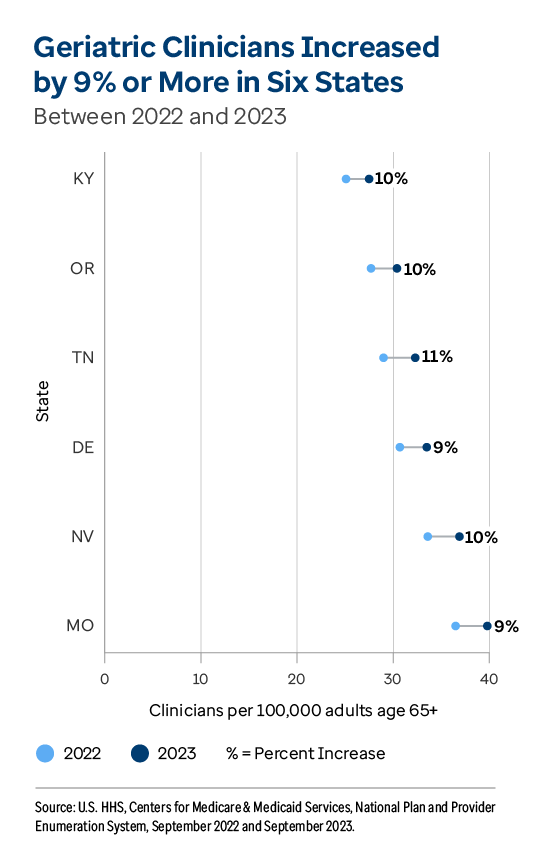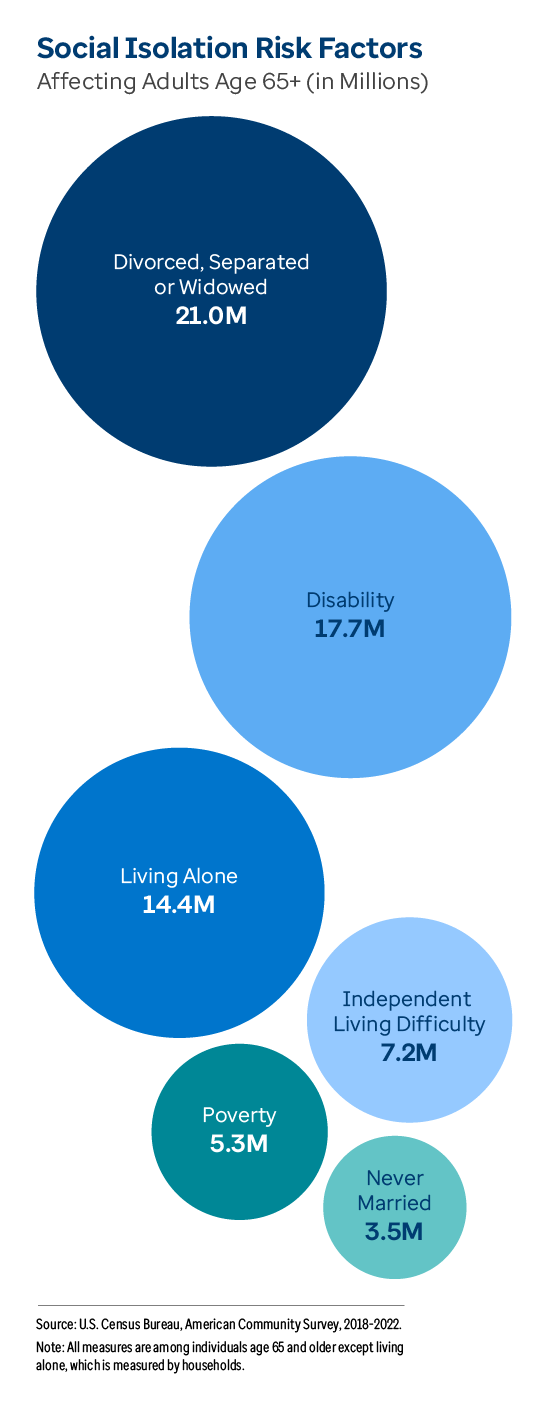The recently released 12th edition of the America’s Health Rankings® 2024 Senior Report provides a comprehensive view of the health of America’s older adults, capturing key trends, successes and challenges across 52 measures of health and well-being.
Although gaps remain across states, the Senior Report reveals both high-speed internet access and the number of geriatric clinicians has continued to increase nationwide. The early death rate significantly declined. However, several economic drivers of health have worsened in recent years, including poverty, housing costs and food insecurity.
For the first time, the report examines how the health of older adults varies by disability status, sexual orientation and veteran status, revealing pronounced disparities in behavioral health.
The report also explores older adults’ social support and well-being in new ways, with new measures such as unpaid elder care.
Read the latest report
America’s Health Rankings® is a vital tool for improving population health — and a key part of our commitment to helping people live healthier lives.
The platform, produced by the United Health Foundation, provides an analysis of the health of various populations, including older adults, on a national and state-by-state basis.
Policymakers, health officials and researchers use these reports to better understand the specific health concerns and areas that are thriving in their communities.
“Accurate and timely data help us understand the health of the nation and tailor community interventions that promote well-being and the ability to thrive among all Americans, especially our seniors. This Senior Report identifies strengths, tracks trends, and empowers communities to build environments and systems that embrace a culture of health and well-being.”
Rear Admiral Paul Reed | Deputy Assistant Secretary for Health and Director, Office of Disease Prevention
& Health Promotion, Department of Health and Human Services




Promising progress
One big step forward is older adults reporting better access to factors that can help them stay connected, both socially and with their clinicians. With the rise in households with high-speed internet access, more older adults can chat with family, connect with their health care providers virtually and stay in touch with friends. There was a 2% increase in high-speed internet access between 2021 and 2022. Other bright spots include:
- The number of geriatric clinicians increased 4% between 2022 and 2023. This reflects a continued increase since 2018, but it still has not caught up to the growing demand.
- Early deaths significantly decreased 8% between 2021 and 2022; however, the rate of early death is still higher than the pre-pandemic rate.
Persistent challenges
From economic challenges like poverty, housing costs and food insecurity to mental health, the Senior Report unveils the complex tapestry of factors influencing the health of older adults.
- The poverty rate increased 6% nationally from 10.3% to 10.9% between 2021 and 2022.
- The housing cost burden rose 3% nationally between 2021 and 2022, representing an increase of more than 741,000 households with older adults struggling with high housing costs.
- Food insecurity increased 8% between 2020 and 2021 — the first increase among older adults since it peaked in 2014.
- Depression increased 6% between 2021 and 2022, affecting more than 9.3 million older adults.
“In all our lives, so many of us have older adults who we admire, who have taught us so much over the years. They are our family members, friends and neighbors. Older adults are an integral part of our nation. As Americans live longer and the population ages, we want to help them thrive and fully participate in their communities. From over a decade of working on these reports and as a geriatrician, I know that when I see improvements in measures, it is because there was a successful coordinated effort to improve them. By providing insights on these measures, we hope that we can help the nation come together to build on these improvements.”
Dr. Rhonda R. | Chief Medical Officer, UnitedHealthcare Employer & Individual Plans, Senior Medical Advisor to America’s Health Rankings and United Health Foundation Board Member

UnitedHealth Group and the United Health Foundation have a wide range of programs and partnerships that aim to improve health for beneficiaries, members and communities in response to the challenges identified by this year’s Senior Report. Some examples include:
For more than 30 years, UnitedHealth Group has used findings from America’s Health Rankings reports, along with additional data and insights from the organization’s team members, to devise and deliver targeted, meaningful solutions that address America’s health disparities — in health care, insurance, clinical expertise and financial support. UnitedHealth Group partners with national and local organizations, government agencies, experts and lawmakers to further improve and better target these solutions, and help all people live healthier lives.
About the United Health Foundation
Through collaboration with community partners, grants and outreach efforts, the United Health Foundation works to improve our health system, build a diverse and dynamic health workforce and enhance the well-being of local communities. The United Health Foundation was established by UnitedHealth Group (NYSE: UNH) in 1999 as a not-for-profit, private foundation dedicated to improving health and health care. To date, the United Health Foundation has committed nearly $800 million to programs and communities around the world, including a $100 million commitment to help diversify the health workforce. To learn more, visit UnitedHealthFoundation.org.
Share This Story